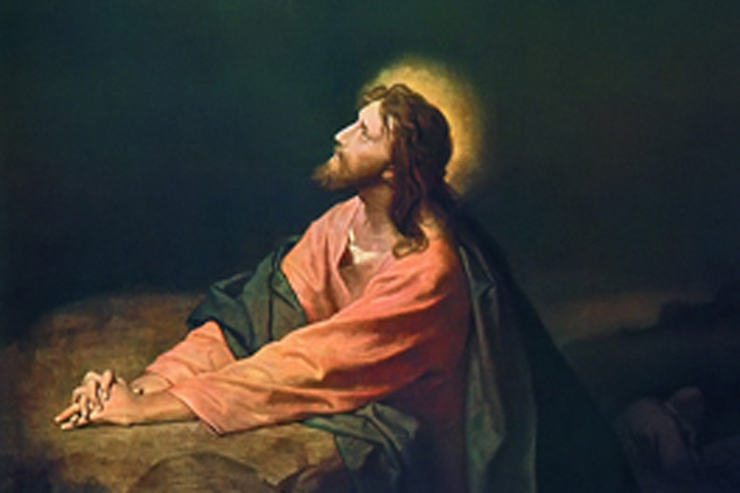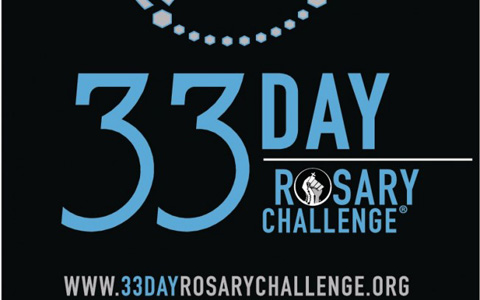“God loves you,” we tell our children. “And your guardian angel watches over you.”
Then they go and skin their knees.
“Go to God with your needs,” we say. But how do we respond to: “I prayed and prayed, so how come things still aren’t better?” It’s hard to know what to say if we are wondering that very same thing.
It makes the most sense to look to Jesus for our answer. During his suffering in the Garden of Gethsemane, he prayed to his Father, “…yet not my will, but yours be done.” (Luke 22:42). He also taught us to pray the “Our Father” which says: “Thy will be done.”
Since so many Bible passages tell us to go to God for strength, we don’t need to read between the lines to know that part of God’s will includes suffering. “Not only so, but we also glory in our sufferings, because we know that suffering produces perseverance; perseverance, character; and character, hope. And hope does not put us to shame, because God’s love has been poured out into our hearts through the Holy Spirit, who has been given to us” (Romans 5:3-5).
It’s About Relationship
Suffering often becomes a stumbling block in our relationship with God when we pray for relief and do not receive it. I have seen people lose their faith in God over this. Yet, others draw closer to God during difficult times. It isn’t that they know the answer, but they have come to understand that a relationship with God means trusting him. When Peter did not understand Jesus talking about eating his Body and Blood in order to have life within us, he relied on his faith in Jesus. “Lord, to whom shall we go? You have the words of eternal life” (John 6:69).
Faith is about trust in God. It is this struggle of our will versus God’s will and coming to understand that prayer is about a relationship with him. That is the theme of my Dear God children’s series. It is also the theme in many of the stories in the Amazing Grace book series I co-authored. And, it is the theme of our lives.
Just One Thing
Msgr. Thomas Richter, Rector of the Cathedral of the Holy Spirit in Bismark, North Dakota, explained during a talk on prayer that praying like Jesus requires one thing: to desire for God to have his way in our life. According to him, it’s not a matter of God answering our prayers as it is for us to be answering God’s will in his life. The key to prayer, according to him, is to get out of the way.
Msgr. Tom identified the important elements for Christian prayer. “First, you can only pray to the degree you have faith,” he said. “In order to grow in prayer, you have to grow in faith. No matter how many prayer techniques you use, if it’s not in faith, you’re not praying.”
“Second, the heart and soul of faith is this: God is your father and everything that you could possibly desire, he already wishes to give you. God is your father and he can only desire what is best for you. Prayer becomes a grace activity where I allow God to act, where I allow God to do the good for me that he wishes to do. “
He stated that since God wants what is good for us, prayer is about allowing God to remove the obstacles so that he can do all the good he wants in our lives. Too often, people fall into the trap of praying to get God to consent to what they want. “That is not Christian prayer,” he said.
Give God his Way
“God has all kinds of good things he wants to do and Christian prayer is God getting us to consent to him. Do you see the difference?” he asked.
Msgr. Tom pointed out that coming up with a plan and then asking God to help us with it, is a very limited way to pray. “No one in the history of mankind ever asked God to become a man and come and save us,” he pointed out. “We never would have thought of it. That was all God’s activity.”
He went on to say that the key is how you look at what God is doing in your life. “What God desires every minute of every day is to make you like Christ,” he said. Quoting St. John of the Cross, he added, “God acts for one purpose—to make our souls great.”
For parents, Msgr. Tom advised us to desire for God to get his way with our family. He instructed us to pray, “ God, I give you permission to do whatever you want with me, even if it makes me suffer. May your kingdom come, may your will be done.” He explained that such a prayer describes the Blessed Mother’s prayer: “I am the handmaid of the Lord, let it be done unto me according to your word.’”
Msgr. Tom said that the place in which God can work most powerfully is “the place where you need God the most.” It could be insecurity, or a need, or some other area where you recognize your need for God. “At such moments,” he said, “God pulls you to places where there is an unfilled desire and you have to rely on him acting in your life.”
In the end, we can trust that God will bring good out of all things for those who want him to get his way. It means that trust overcomes our reluctance to suffer and as we trust, we experience a greater peace, knowing that the resurrection will be a part of the story.
Editor’s Note: For more about Patti, visit her blog – www.PattiMaguireArmstrong.com















